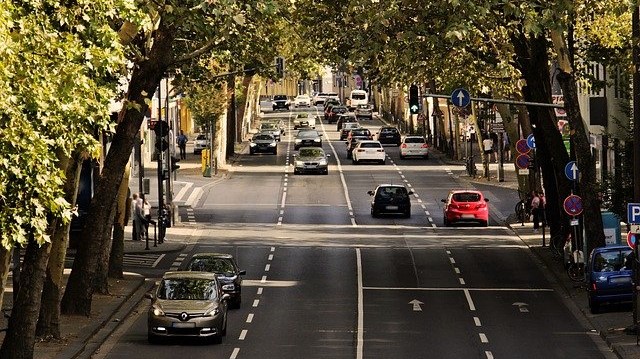Group | Environmental Exposure Modelling
The physical and social environment in which we live - and how we move around our activity space - plays an important role in our health and well-being. We explore the integral connection between health and place with an emphasis on the built environment, including both areas with pollution (e.g. air pollution, noise, radon, pesticides) and those that can be health promoting (e.g. green spaces and natural environments). Our epidemiological analyses are underpinned state-of-the-art spatio-temporal environmental exposure modelling techniques, often within a Geographic Information System (GIS) environment, exploiting Earth Observation and ancillary data.
Big Data Challenges in Exposure Science
As health data are subject to data protection, innovation in exposure assignment and processing of big data are crucial. One of our key research aims is to solve issues related to these challenges, from the application of novel statistical techniques (e.g. machine learning) to the development of harmonized environmental exposure databases for large populations to support vital collaborative research on important environmental health issues faced by today’s society.

Key Projects

EXPANSE: Exposome Powered Tools for Healthy Living in Urban Settings
The main aim of the EXPANSE project is to address one of the most pertinent questions for urban planners, policy makers, and inhabitants in Europe: “How to maximize one’s health in a modern urban environment?” EXPANSE will translate its insights and innovations into research and dissemination tools that will be openly accessible via the EXPANSE toolbox. By applying innovative ethics-by-design throughout the project, the social and ethical acceptability of these tools will be safeguarded. Tool discoverability and accessibility will be stimulated through the EXPANSE hub in which citizens, public sector policy makers, and private sector companies collectively participate. Further information

MOBI-AIR: Accounting for Mobility in Long-Term Air Pollution Exposure
Large-scale epidemiological studies investigating long-term health effects of air pollution can typically only consider participants' residential locations, thereby ignoring the space-time activity patterns that likely influence total exposure. People are mobile and can be exposed to considerably different levels of air pollution or pollutant mixtures. Neglecting these mechanisms in exposure assessment can lead to incorrect distributions of exposure in the population which may result in incorrect exposure-health relations in epidemiological studies. The main aim of this study is to assess whether more sophisticated estimates of individual exposure that considers population mobility decrease the bias in health studies. Read more
PaRTERRE - Prospective cohort study on skin cancer and residential radon exposure
This large study aimed to contribute to a better understanding of the risk factors for skin cancer. After Australia and New Zealand, Switzerland is ranking third worldwide for malignant melanoma incidence. In addition to UV radiation, recent studies found indications that radon may increase the risk for skin cancer. Radon levels in Switzerland are higher than in most other countries. To know if there is a link between household radon exposure and skin cancer is thus of high public health relevance. Read more
Our Partners
Latest Publications
All Publicationsde Hoogh K et al. Comparison of residential and mobility-integrated air pollution exposures from tracking campaigns and agent-based modelling in Switzerland and the Netherlands. J Expo Sci Environ Epidemiol. 2026(in press). DOI: 10.1038/s41370-025-00836-5
Vogli M et al. The impact of environmental exposures on DNA methylation in the EXPANSE project. EBioMedicine. 2026;123:106084. DOI: 10.1016/j.ebiom.2025.106084
de Hoogh K et al. Accounting for mobility in air pollution exposure estimates in studies on long-term health effects. Res Rep Health Eff Inst. 2025(229):1-60
de Hoogh K et al. A Europe-wide characterization of the external exposome: a spatio-temporal analysis. Environ Int. 2025;200:109542. DOI: 10.1016/j.envint.2025.109542
Jouanny A et al. Machine-learning-driven reconstruction of organic aerosol sources across dense monitoring networks in Europe. Environ Sci Technol Lett. 2025;12(11):1523-1531. DOI: 10.1021/acs.estlett.5c00771
 Benjamin Flückiger
Benjamin Flückiger
 Andrea Novaro
Andrea Novaro
 Shoukai Sun
Shoukai Sun